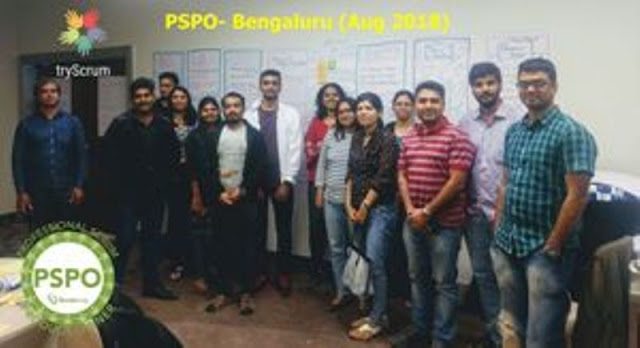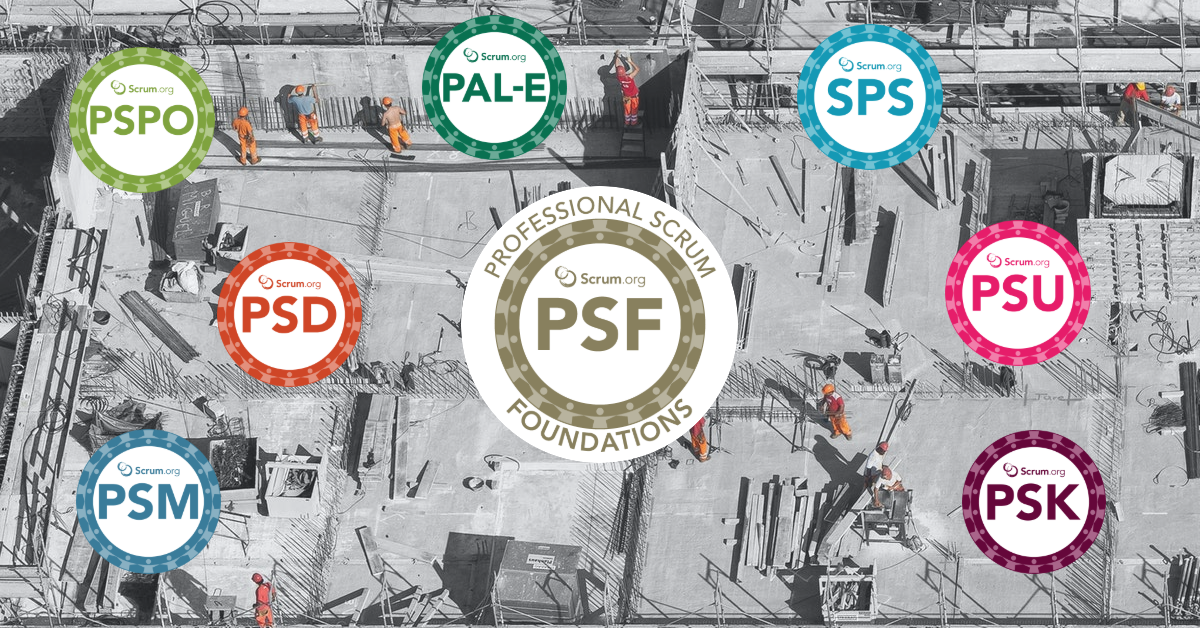One of the most sought certifications in the Agile
industry for Scrum Masters is Professional Scrum Master I (PSM I). The
certification is offered by Scrum.org — The Home of Scrum. A foundational
certification in the field of Scrum Mastery.
There are three levels of Professional Scrum Master
Certifications Scrum.org offers. The other two are Advanced (PSM-II) and
Distinguished (PSM-III) level certifications. There is no definitive order that
you have to go. One can directly appear for PSM-III if they have a deep
understanding of Scrum.
As the name suggests, “Professional” — One must
exhibit a high standard of understanding in Scrum to gain this certification.
PSM I demand an understanding of Scrum, as mentioned in the PSM
training online Guide and it tests the
consistency in using Scrum.
In this blog, I am going to cover the
·
Ways to get
Professional Scrum Master Certified
·
Assessment areas
·
Learning
references
·
Tips to crack
the exam
Ways to get
Professional Scrum Master I (PSM I) Certified
Scrum org offers two paths to PSM I
Certification — Training with exam & Exam (Direct).
Training
Training for PSM I are offered
·
By Professional
Scrum Trainers accredited by Scrum dot org after a rigorous assessment of depth
in Scrum knowledge and Scrum Mastery experience.
·
By Professional
Training Networks (PTN) — Recognised training partners of Scrum dot org in
collaboration with Professional Scrum Trainers.
As part of the training, a candidate gets two
attempts at PSM I exam.
Note: Beware of the bait that few people in the
industry claim to take Scrum workshops to help get PSM. Go with Authenticity.
Direct Exam
One can directly buy a password from the Scrum dot
org store by paying $150. The password is valid for only one attempt.
PSM I Assessment
Areas
The foundational level, Professional Scrum Master
(PSM I), assess a candidate’s basic understanding of the below areas.
Scrum Framework
Understanding & its Application
·
Empiricism
·
Scrum Values
·
Scrum Team
·
Events
·
Artifacts
·
Done
Enabling Teams
·
Self-managed
teams
·
Facilitation
·
Coaching &
Mentoring
Agility in
Product using Scrum
·
Product Value
·
Product Backlog
Management
·
Stakeholders
& Customers
·
Forecasting
& Release Planning
Learning
References
In my humble opinion, attending a Professional Scrum
Master Workshop gives one well-rounded knowledge in all the above areas.
Apart from the class, use the below references.
·
Reading &
the Scrum Guide is of utmost importance. Do not stop just by reading it. Use
your learning preference to annotate it or digest it.
·
Finish the
learning path for Scrum Master in the Scrum dot org
·
Reading
references in Scrum dot org
·
Scrum Framework Foundational
videos
·
Scrum Myths
busted
·
True Leader
·
Whitepaper — Scrum
Master Stages
·
Forever Scrum
Master
·
Scrum Master
& Product Owner — Same Person?
·
Product Goal — A
commitment
·
A-Z with Scrum
Tips to crack
the exam
Let us start with the Assessment,
·
The assessment
is of 80 Multiple Choices questions. And the time limit is 60 minutes. One has
to get 68 questions right to achieve the pass percentage, 85%.
·
Bookmark
questions to revisit. One may run out of time if more time is spent on a single
question.
·
Utilise the
Scrum Open Assessment to get yourself confident with the format of the main
exam. The open assessments are free. Take it as many times as possible to get
familiarised. The open assessments provide feedback for every question at the
end.
·
Take the assessment
in a calm place where one can have the utmost focus.
·
Be sure to have
a good internet connection as well. Do not close the browser at any cost; the
attempt will be lost.
·
For technical
glitches, reach out to Scrum dot org support.
Learning Tips
·
Practice the
usage of Scrum terminologies as in Scrum Guide. Maybe through forming peer
groups or self-recordings to reflect. Like, Daily Standup →Daily Scrum; Backlog
Grooming → Product Backlog Refinement.
·
Scrum demands
Empiricism, Self-management and Product thinking. Understand the why’s behind
Scrum carefully and be mindful to choose answers adhering to it.
·
Watch out for
universal statements in the exam. It may trap you to choose the wrong answer.
Learn to differentiate the mandatory and non-mandatory elements in Scrum.
·
If you are
unsure of the answers, try to avoid bad answers to nail the correct answer.
·
Move away from
the traditional phase gated approaches. Learn to differentiate Scrum from
traditional thinking and practices.
·
The Exam demands
the information by the books. Go by the books and authentic information. Try
not to bring one’s experience with Scrum, as in practice, one may not follow
Scrum by the books.
Special Note: Do not refer to any mock-ups or
practice tests as those are not endorsed by Scrum dot org and may not be
authentic.
Resource: https://www.tryscrum.com/blogs/how-to-pass-professional-scrum-master-i-psm-i-certification/














